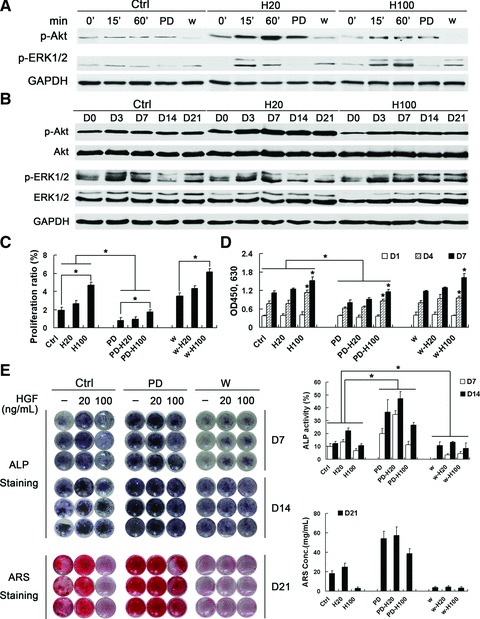Fig 4.

Effects of ERK1/2 and Akt pathways on MSC proliferation and differentiation. (A) Western blot analysis of ERK and Akt activation in MSCs after short-term treatment with HGF. H20 treatment resulted in greater Akt and weaker ERK1/2 phosphorylation in comparison with H100 treatment. Activation of ERK1/2 and Akt were inhibited by pre-treatment for 1 h with PD98059 (30 μM PD) or wortmannin (10 nM w), respectively. (B) Western blot analysis of ERK1/2 and Akt activation during differentiation with long-term treatment of HGF. Both ERK1/2 and Akt were continuously phosphorylated in similar pattern with short-term HGF treatment, which was maintained to the end of differentiation. (C) EdU incorporation assays in MSCs pre-treated with PD98059 and wortmannin for 1 hr prior to incubation with HGF for 24 hrs. (D) Cell viability assays after treatment with HGF for 1, 4 and 7 days. Assays indicate that MSC proliferation was significantly suppressed by PD98059, but not wortmannin pre-treatment. (E, F) MSCs were maintained in DM containing HGF for 21 days. The level of osteogenesis was assessed by staining for ALP activity and calcium deposition with NBT-BCIP and ARS, respectively. Quantification analysis showed that PD98059 pre-treatment strongly promoted differentiation which was greatly suppressed by wortmannin pre-treatment; *P < 0.05.
